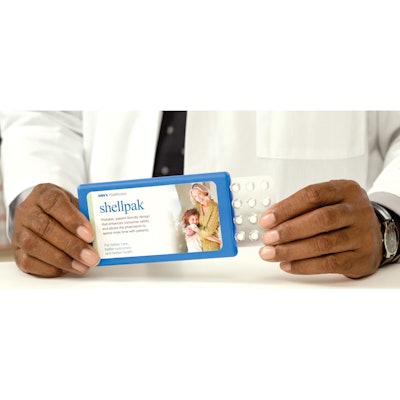An article published in the September 2011 issue of the American Heart Journal provides the outcome of a recent think tank meeting at the Duke Clinical Research Institute that reviewed the magnitude, prevalence, impact, and cost of medication nonadherence. DCRI is known for conducting groundbreaking multinational clinical trials, managing major national patient registries, and performing landmark outcomes research
Packaging supplier MeadWestvaco Corp. and adherence experts including representatives from consumer groups, community health providers, academia, government officials, and industry participated in a two-day meeting to evaluate the current status of the problem and provide recommendations for policy change to improve medication adherence and its impact on public health and medical costs.
Poor medication adherence is a growing national concern. Research shows that half of all patients in the U.S. do not take their medicines as prescribed, despite evidence that medical therapy prevents death and improves quality of life. Approximately 125,000 deaths per year in the U.S. are due to medication nonadherence, with total cost estimates ranging from $100 to $300 billion annually. A recent World Health Organization report states that, because the magnitude of medication nonadherence is so alarming, more health benefits worldwide would result from improving adherence to existing treatments, than from developing new medical treatments.
The goal of the meeting was to raise national awareness of the adverse consequences of nonadherence, to propose practical strategies for disseminating evidence-based approaches in real-world clinical settings, and to delineate a broad role for electronic information technology.
“An important first step in the meeting was to evaluate the current evidence base for medication adherence,” said William H. Shrank, MD, MSHS, division of pharmacoepidemiology, Brigham & Women’s Hospital, Harvard Medical School. “While the total number of publications has increased, there are only a handful of rigorous trials on medication adherence interventions compared with the many thousands of trials for efficacy of individual medications.”
Another complicating factor that surfaced is that the interventions for long-term medications tend to be exceedingly complex, labor intensive, and costly. In addition, questions remain as to how these interventions would be feasibly executed and sustained. In the short-term, simple scalable adherence strategies should be more broadly used until they can ultimately become part of successful multifaceted and tailored interventions.
A recent study published in Clinical Therapeutics using Walmart pharmacy dispensing data from more than three million individuals found such scalable results when calendar blister packaging was introduced at the pharmacy for a once-daily solid oral dose cardiovascular medication. This study demonstrated that an adherence strategy of even small effect size at the individual level that is broadly implemented on a population level, could significantly leverage therapeutic efficacy and provide substantial cumulative public health benefit.
In putting forth their recommendations, the group identified assumptions for successful interventions including (1) developing a multi-faceted, tailored approach that addresses both health literacy and behavior; (2) shared and mutually agreed upon priorities and objectives for medication selection and management with the need for reciprocal flow of information among patients, caregivers and providers; and (3) regular ongoing feedback regarding performance in achieving established treatment goals for patients and providers.
The group is proposing an ongoing alliance to continue to work together to frame the problems related to medication adherence and share methods for improvement. For the future, there is a continued need to examine both simple and complex interventions that are effective, easy to use and readily available, such as a toolbox for providers.
Technology will also increase in use and will help individuals, but continued input from patients and providers is needed on how to best incorporate these advances in clinical care. Lastly, shifting provider reimbursement systems to reward them for achieving better patient outcomes as well as including medication adherence into performance measures can help incentivize providers to emphasize adherence during the medical visit.
Edited from an article provided by MeadWestvaco.



























